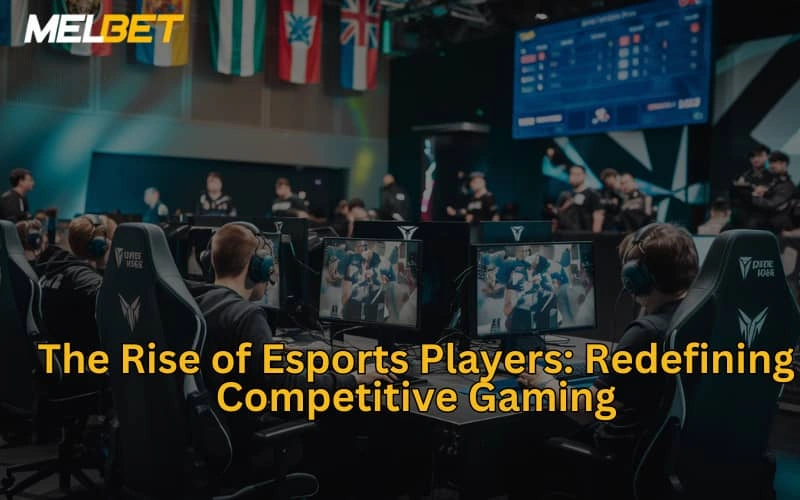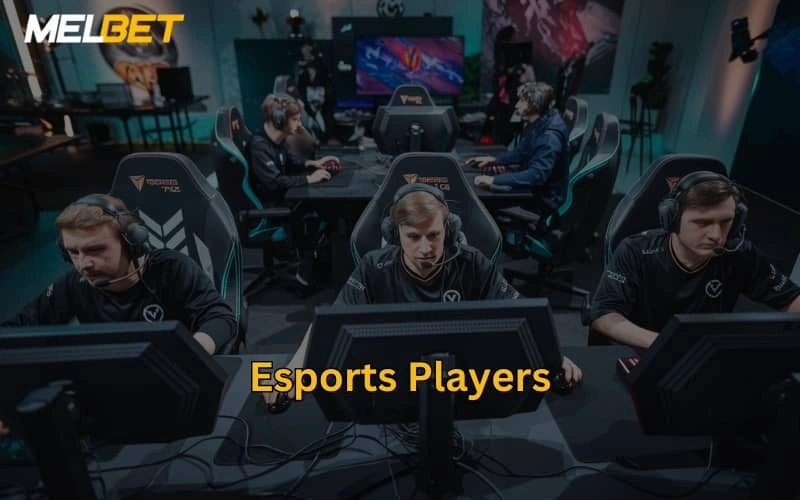Esports players have rapidly transformed the gaming world, bringing professionalism, strategy, and unparalleled skill to competitive gaming. Once considered a niche hobby, esports has now evolved into a global phenomenon, with players at the heart of this revolution. Their influence extends far beyond the games they play, shaping industries, inspiring millions, and redefining what it means to be a professional athlete in the digital age.
Esports Players: The Driving Force Behind Gaming’s Growth
Esports players are not just participants in tournaments; they are the architects of a rapidly growing industry. With the global esports market valued in the billions, players play a pivotal role in attracting audiences, sponsors, and investors. Their dedication to perfecting gameplay, coupled with their ability to connect with fans, has elevated esports from a pastime to a professional sport recognized worldwide.
Professional players spend hours mastering mechanics, studying opponents, and devising strategies, mirroring the rigorous training regimens of traditional athletes. They are innovators, pushing games to their limits and uncovering new ways to play. This ingenuity has created entirely new competitive metas, influencing how games are played at every level, from casual matches to world championships.
The Role of Esports Players in Shaping Game Metas
The term “meta” refers to the most effective tactics available in a game. Esports players are instrumental in defining and evolving these metas. Their ability to experiment and adapt sets them apart from casual players. When they identify powerful strategies, new techniques, or innovative character builds, the community takes notice.
For instance, when a professional player uses an melbet online underappreciated character or strategy to win a major tournament, it often leads to a ripple effect across the gaming community. Casual players mimic these tactics, developers may tweak the game’s balance, and competitors work to counter these strategies. In essence, esports players are the catalysts for change within the gaming ecosystem.
The Lifestyle of Esports Players
The life of an esports player is not all glamour and fame. It demands discipline, sacrifice, and relentless effort. Professional players often train for 10-12 hours a day, balancing physical fitness, mental health, and rigorous practice schedules. Their commitment extends to studying replays, learning from defeats, and staying ahead of the competition.
This lifestyle can take a toll on players, with burnout being a significant challenge. However, many players thrive under these conditions, driven by passion, community support, and the prospect of victory on the global stage. As the industry grows, organizations are increasingly offering resources like sports psychologists, fitness trainers, and structured schedules to support players’ well-being.
Esports Players as Influencers and Role Models
Beyond the competitive arena, esports have become influential figures. With millions of followers across platforms like Twitch, YouTube, and social media, they are role models for aspiring gamers. They share their experiences, teach strategies, and provide a glimpse into their lives, creating a deeper connection with fans.
These players are also ambassadors for the gaming industry, breaking stereotypes about gamers and showcasing the positive aspects of competitive gaming. Their success stories inspire young gamers to pursue their passions and consider esports as a legitimate career path.
The Economic Impact of Esports Player
The contributions of esports players extend to the economy. They generate revenue through tournament winnings, brand endorsements, merchandise, and streaming platforms. Major tournaments, fueled by the presence of star players, attract millions of viewers, driving ad revenue and sponsorship deals.
Additionally, players help foster local economies by inspiring the creation of esports hubs, gaming cafes, and training facilities. As the demand for skilled players grows, so does the infrastructure needed to support them, creating opportunities for coaches, analysts, and content creators.
Challenges Faced by Esports Players
Despite their success, esports players face unique challenges. The competitive lifespan of a player is often short, with most retiring in their late 20s or early 30s. This creates pressure to achieve success quickly and secure financial stability.
Moreover, the fast-paced nature of the industry requires players to constantly adapt to new games, updates, and metas. Those who cannot keep up risk losing their competitive edge. Recognizing these challenges, many players transition into coaching, content creation, or entrepreneurship after their competitive careers.
The Future of Esports Players
The future for esports players is incredibly bright. With increasing recognition from traditional sports organizations, governments, and educational institutions, their impact is set to grow. Scholarships for esports athletes, inclusion in international events like the Asian Games, and the creation of professional leagues all point to a promising horizon.
As technology evolves, players will have new tools to refine their skills and connect with audiences. Virtual reality, augmented reality, and artificial intelligence are just a few innovations that could redefine the role of esports players in the years to come.
Esports players have not only redefined competitive gaming but also reshaped global perceptions of what it means to be a professional in the digital era. They are trailblazers, paving the way for the next generation of gamers to dream bigger and achieve more than ever before.








